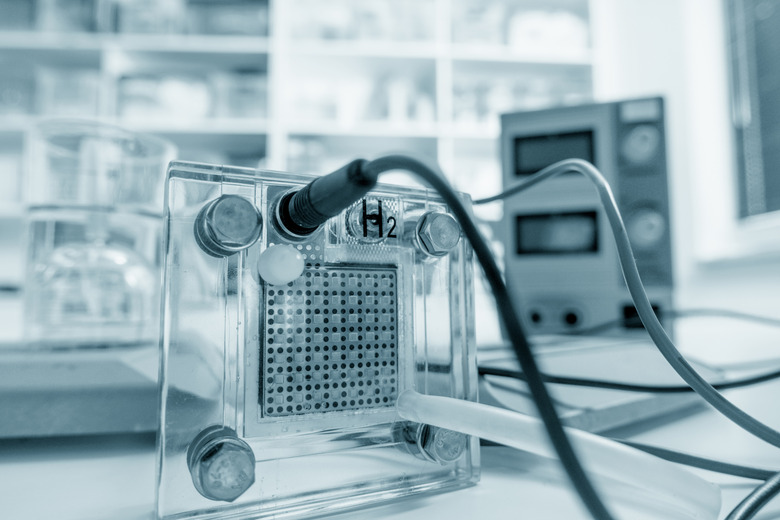Magnetic Properties Of Hydrogen
Hydrogen is a gas found in the atmosphere at trace levels which can not sustain life. It is synthesized from hydrocarbons and water. Hydrogen gas makes up the lightest fraction of the H2O molecule. Hydrogen is both the lightest and most basic of all elements. It is a fairly reactive gas, which enters into chemical combination with most of the elements and is feebly repelled by magnetic forces.
Permanent magnetic movement
Permanent magnetic movement
A large section of physics is devoted to the study of the effects produced within various materials by the application of a magnetic field. In the hydrogen atom, a nucleus with a single positively charged proton, which remains stationary, is orbited by a single negatively charged electron. Such a configuration may give the impression that hydrogen has a powerful magnetic attraction, but this is not the case. Hydrogen gas is, in effect, only very weakly magnetic. The reason for this is that hydrogen atoms are not found in isolation. They are bonded together to form a molecule, which has a lower chemical energy than separate atoms. Within this molecule, the momentum of one electron travels in the opposite direction to that of its neighbor. Due to this phenomenon, the molecule is only weakly magnetic and is considered to lack a permanent magnetic moment.
Faraday’s Law
Faraday's Law
Hydrogen is a diamagnetic substance. Diamagnetism occurs in materials whose atoms have paired electrons. According to Faraday's Law, when a hydrogen molecule is exposed to a magnetic field its electrons which are in orbit, alter their momentum slightly. As the magnetic field increases, an induced field is created, which the molecule's electrons experience as a force. Through this principle of physics, the hydrogen molecule acquires an induced magnetic moment. This induced moment is opposite to the applied field and is termed diamagnetism. Through these principles of physics, hydrogen is feebly repelled by a nearby magnet.
Magnetism in interplanetary space
Magnetism in interplanetary space
Magnetism is the essential force that determines the form of plasma or ionized matter. The hydrogen regions around galaxies are also plasmas, despite the degree of ionization being small. The degree of ionization in interplanetary space varies from that in the hydrogen regions to fully ionized states in other regions of space. In space, however, even the weakly ionized plasma in the hydrogen region reacts strongly to electromagnetic fields. Magnetized plasma, such as contained in the hydrogen region, is the dominating state in the universe as a whole.
Cite This Article
MLA
Bolton, Naomi. "Magnetic Properties Of Hydrogen" sciencing.com, https://www.sciencing.com/magnetic-properties-hydrogen-7648446/. 15 December 2010.
APA
Bolton, Naomi. (2010, December 15). Magnetic Properties Of Hydrogen. sciencing.com. Retrieved from https://www.sciencing.com/magnetic-properties-hydrogen-7648446/
Chicago
Bolton, Naomi. Magnetic Properties Of Hydrogen last modified March 24, 2022. https://www.sciencing.com/magnetic-properties-hydrogen-7648446/
